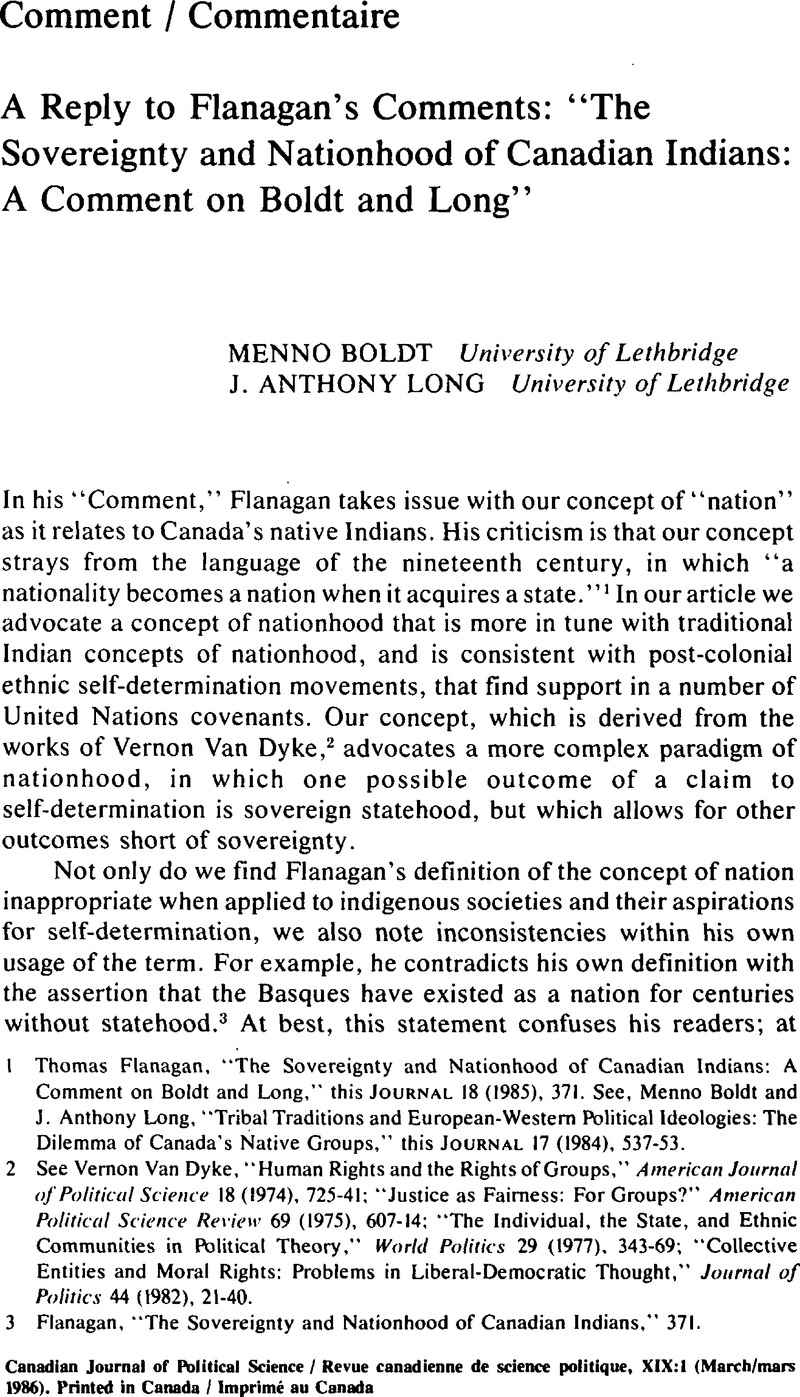No CrossRef data available.
Article contents
A Reply to Flanagan's Comments: “The Sovereignty and Nationhood of Canadian Indians: A Comment on Boldt and Long”
Published online by Cambridge University Press: 10 November 2009
Abstract

- Type
- Comment/Commentaire
- Information
- Canadian Journal of Political Science/Revue canadienne de science politique , Volume 19 , Issue 1 , March 1986 , pp. 151 - 154
- Copyright
- Copyright © Canadian Political Science Association (l'Association canadienne de science politique) and/et la Société québécoise de science politique 1986
References
1 Flanagan, Thomas, “The Sovereignty and Nationhood of Canadian Indians: A Comment on Boldt and Long,” this JOURNAL 18 (1985), 371Google Scholar. See, Boldt, Menno and Long, J. Anthony, “Tribal Traditions and European-Western Political Ideologies: The Dilemma of Canada's Native Groups,” this JOURNAL 17 (1984), 537–53Google Scholar.
2 See Dyke, Vernon Van, “Human Rights and the Rights of Groups,” American Journal of Political Science 18 (1974), 725–41;CrossRefGoogle Scholar“Justice as Fairness: For Groups?” American Political Science Review 69 (1975), 607–14;CrossRefGoogle Scholar“The Individual, the State, and Ethnic Communities in Political Theory,” World Politics 29 (1977), 343–69;CrossRefGoogle Scholar“Collective Entities and Moral Rights: Problems in Liberal-Democratic Thought,” Journal of Politics 44 (1982), 21–40CrossRefGoogle Scholar.
3 Flanagan, , “The Sovereignty and Nationhood of Canadian Indians,” 371Google Scholar.
4 Ibid., 373.
5 Ibid., 373–373.
6 Ibid., 370.


